Spring 2019 Events
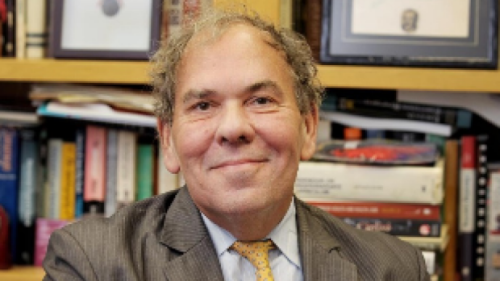
Arthur Levine
Meet & Greet with Arthur Levine
Monday, March 2nd, 2020
Professor Levine has held various leadership positions, most recently as President of the Woodrow Wilson Foundation and previously as President of Teachers College, Columbia University. Prior to Columbia, he headed the Institute for Educational Management at Harvard University.
A widely known thinker and speaker, his books include Shaping Higher Education’s Future and When Dreams and Heroes Died: A Portrait of Today’s College Students. He is currently completing a book on the Future of Higher Education. Next month he is
teaching our 1-credit course with the same title and registration is still possible (HPSE-GE 2174).
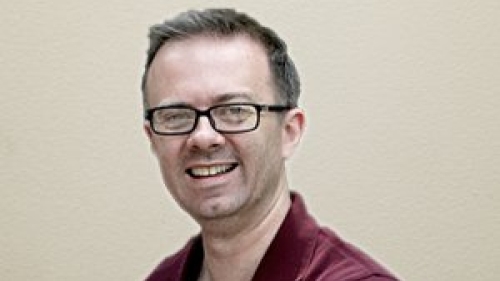
Interfaith Learning & Development Among College Students - What They’re Learning & What They’re Not
February 26, 2020
Dr. Matthew Mayhew is the William Ray and Marie Adamson Flesher Professor in Education Administration at The Ohio State University. He holds a PhD in Higher Educational Administration from the University of Michigan. His research interests include how collegiate conditions, educational practices, and student experiences influence learning and democratic outcomes, including moral reasoning; pluralism; productive exchange across worldview differences; and innovation capacity.
What if college students aren’t learning what they should be? This presentation addresses the ways college students make meaning of interfaith practices and interworldview relationships. Implications complicate student affairs practices long revered for helping educators design experiences intended to affect the “whole” student.
Matthew Mayhew is the leading researcher on the Interfaith Diversity Experiences & Attitudes Longitudinal Survey (IDEALS), which currently reaches over 100 colleges, in an effort to understand undergraduate encounters with religious and worldview diversity.
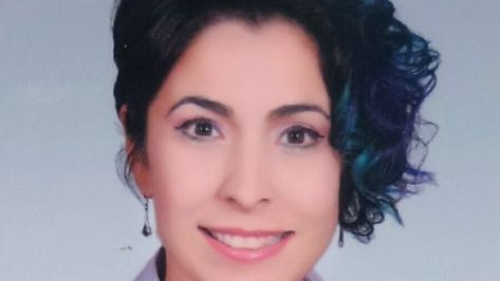
Turkish Higher Education System - Developments and Challenges
February 13, 2019
Dr. Burcu Erdemir is an assistant professor at Middle East Technical University (METU) in Turkey. She holds a PhD in Educational Administration and Planning from METU. Her research interests in higher education are policies, leadership, social justice, ethics and workplace bullying.
Turkey has not had major education reforms since the establishment of The Council of Higher Education in 1981. Since then some goals that were set to improve the higher education system have been achieved but others remain to be addressed. This presentation uses the most recent data to highlight the structure of the Turkish higher education system, the steps that have been taken until now and the major challenges that wait to be dealt with through the much needed reform policies.
Fall 2019
Refugee Access to Higher Education in Europe
December 4, 2019
Marie-Agnès Détourbe is an Associate Professor in Higher Education Studies at a French grande école, INSA Toulouse, and the Graduate School of Education (INSPE). She is also VP for International Affairs at INSA Toulouse and member of the Consortium of Higher Education Researchers (CHER).
This talk examined how access to higher education for refugee students is handled within the European Higher Education Area, including the initiatives and challenges for academic and social inclusion.
Radical Creativity in Higher Education
November 20, 2019
A conversation with Richard Freeland about his new book (Transforming the Urban University: Northeastern, 1996 - 2006) which discusses the years 1996-2006 when he served as the President of Northeastern University in Boston.
During these years, Northeastern changed from a local, regional university to a highly successful, nationally acclaimed research university. As president, Freeland was the radically creative leader who accomplished this amazing transformation, and now, as an historian, he analyzes the factors that enabled it.
MJ Knoll-Finn, NYU Senior Vice President for Enrollment Management, and Jim Fraser, historian of education and Interim Vice Dean, NYU's Steinhardt School both served at Northeastern during its era of growth. They added their insights, views, and memories.
It is often noted that Northeastern followed a "playbook" similar to New York University's a decade earlier. Lynne Brown, NYU Senior Vice President for University Relations and Public Affairs, who served in a central role during that era reflected on the similarities and differences in both the urban context and institutional developments.

Ann Marcus, Susan Dynarski, David Leonhardt, and Stella Flores took part in a breakfast conversation about college access.
Higher Education & the 2020 Election
Friday, October 25, 2019
- David Leonhardt, Op-Ed columnist at the New York Times and founder of The Upshot.
- Susan M. Dynarski, Professor of Public Policy; Professor of Education; Professor of Economics, and Distinguished Diversity & Social Transformation Professor, University of Michigan
The New Mobility in Higher Education: Does a College Degree Matter?
Friday, October 25, 2019
- Stella Flores (Moderator), Associate Dean for Faculty Development and Diversity, New York University, Director of Access & Equity, Steinhardt Institute for Higher Education Policy
- Paul Attewell, Professor of Sociology and Urban Education, The CUNY Graduate Center
Presentation: The Value of an Incomplete Degree - Susan Dynarski, Professor of Public Policy, Education and Economics, University of Michigan
Presentation: Aid Policy: Does it Help or Hinder Economic Mobility? - Michal Kurlaender, Professor of Education Policy, University of California Davis
Presentation: Broad-Access Postsecondary Institutions and the Demography of Opportunity
Higher education is in a state of great challenge as well as opportunity. Is it still the great engine of opportunity or the hidden mechanism for reproducing social inequality? In this panel, expert scholars will discuss the current and future status of the US postsecondary system through the lenses of financial aid, the consequences and returns of not completing a degree, and the key institutions educating the new demography of this nation.
Spring 2019 Events
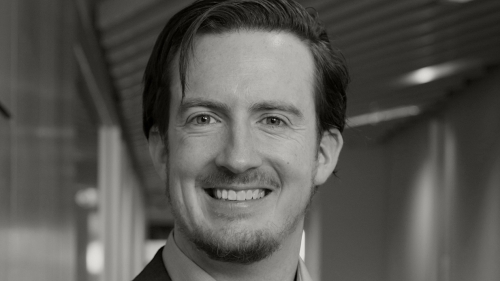
The Value of Higher Education in the Disrupted Age: Notes from Australia
March 12, 2019
Shane B. Duggan, Vice Chancellor's Research Fellow, RMIT University
Dr. Duggan examines the Australian Higher Education (H.E.) landscape and considers how policy makers and Higher Education providers are responding to the challenges and opportunities of networked technologies. Due to its admissions processes, size, and funding structure, the Australian H.E. context is a useful ‘sandbox’ for thinking about Higher Education more broadly. He outlines the implications of broad scale policy shifts on student recruitment, retention, and outcomes, and points to emerging trends around equity and access, drawing out similarities and differences with the United States H.E. context.
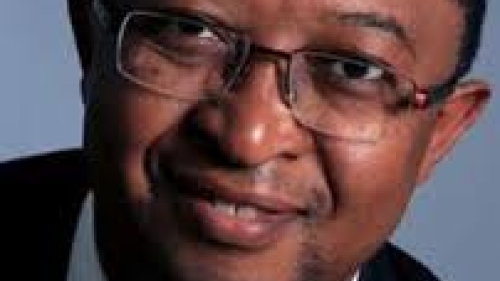
Challenges for Higher Education in South Africa
February 12, 2019
Molapo Qhobela, Chief Executive Office of the National Research Foundation
Dr. Qhobela discussed challenges for higher education in South Africa. A persistent challenge facing higher education in South Africa since 1994 is to redress past inequalities and to transform the higher education system to serve a new social order, to meet pressing national needs. Access to higher education and education in general has improved, but with a number of caveats related to further investment, institutional transformation, and innovative support mechanisms.
Fall 2018 Events
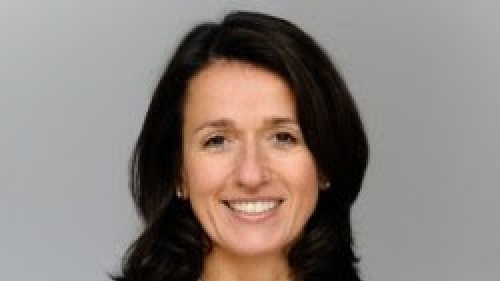
University Leadership in Times of Change: Examples from Europe
November 29, 2018
Barbara Sporn, Professor and Director of the Institute of Higher Education Management, Vienna University of Economics and Business
Professor Sporn compares her experience as Vice-Rector at one of the largest business schools in Europe with a career as a higher education researcher. Her focus was on leadership issues, change management, and possible avenues of further research in the study of colleges and universities. The presentation outlined major reform efforts in Europe and policy implementations in Austria.
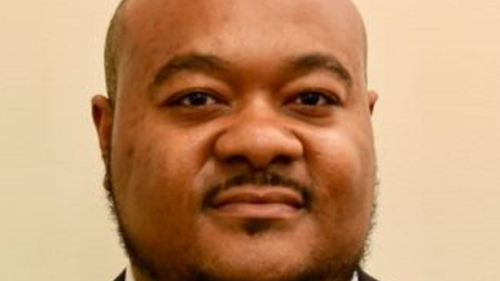
College Student Mobility and the Role of Statewide Articulation
November 1, 2018
George Spencer, Dean's Faculty Fellow, NYU Steinhardt School of Culture, Education, and Human Development
In this talk, Dr. Spencer presented evidence from a national examination of transfer associate degree policies: an articulation approach featuring two-year credentials as a mechanism to seamlessly transfer credits from community colleges to four-year institutions. Using institution-level data from the Integrated Postsecondary Education Data System, he exploits variation in the introduction of these policies across multiple states as a natural experiment. Results suggest that such policies increased rates of associate degree completion but the effect varied across states. The findings support the hypothesis that comprehensive articulation may be most effective at redirecting students to transferable pathways specified by the legislation.
2017 Events
Making College Work: Pathways to Success for Disadvantaged Students
December 4, 2017
Sandy Baum, Senior Fellow, Education Policy Program at the Urban Institute and Professor Emerita of economics at Skidmore College
Harry Holzer, Nonresident Senior Fellow, Economic Studies at the Brookings Institution
Too many disadvantaged college students in America spend time and money on coursework without graduating or earning credentials, while others earn degrees or certificates that hold little labor market value. Many of these students also struggle to pay for college, and some incur debts they have difficulty repaying. In Making College Work, a new book from the Brookings Press, Harry Holzer of Georgetown University and the Urban Institute’s Sandy Baum propose a range of policy solutions aimed at alleviating difficulties faced by too many of America’s college students, including weak academic preparation, financial pressures, and institutional failures that create barriers to success.
Enrollment Management: Practice and Research
November 15, 2017
Marybeth Murphy, Vice President for Enrollment Management and Student Affairs, Stevens Institute of Technology
Gregory Wolniak, Clinical Associate Professor of Higher Education & Director, Center for Research on Higher Education Outcomes, New York University
This session explores the differences in enrollment management practices at several New York area institutions of higher education. Ms. Murphy outlined the basic challenges involved in creating a freshman class each year, as well as the nuances of selection. Professor Wolniak reviewed the student demographics that underlie admissions strategies and briefed students on how current research informs the broad field of enrollment management.
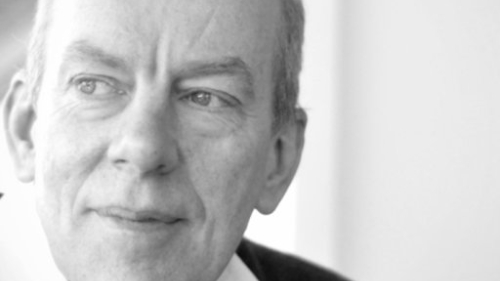
Challenges for Higher Education in Europe
June 15, 2017
Peter Maassen, Professor of Higher Education, University of Oslo, Norway
Recent economic and political events in Europe have prompted many questions about the direction forward for nations and institutions. This talk covered issues such as public governance and public funding (including tuition fees); system diversity; Brexit and the European Union; global rankings and quality assessment strategies.
2016 Events
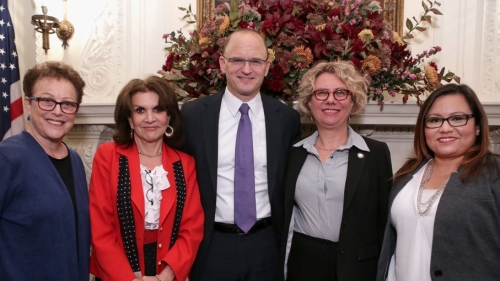
Post - Fisher Affirmative Action: Status Quo or New Opportunities?
September 30, 2016
Greg Garre, Lead Attorney for University of Texas, Former Solicitor General of the United States, Partner Latham & Watkins Law Firm
Marta Tienda, Professor in Demographic Studies and Professor of Sociology and Public Affairs, Princeton University
Sigal Alon, Associate Professor of Sociology and Anthropology, Tel Aviv University
Stella Flores, Associate Professor of Higher Education, New York University
The Supreme Court decision of June 23, 2016 upheld the "race conscious" admissions processes of the University of Texas. The decision was a surprise, and to most in the world of higher education, a welcome surprise. At our forum on September 30th, Greg Garre, lead attorney for the University of Texas and a former Solicitor General of the United States, will discuss the University's legal strategies, analyze the Supreme Court's opinion, and preview possible paths forward. Professors Marta Tienda, Sigal Alon and Stella Flores whose work helped shape the arguments in this case will give their views of the key research elements that will be crucial as institutions and state governments assess future challenges and opportunities.
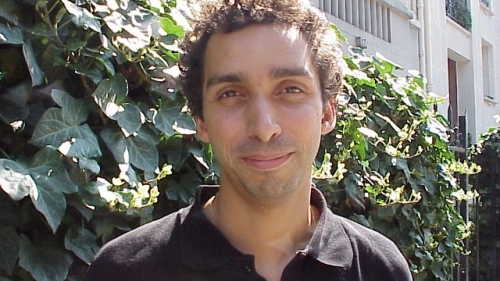
Preparing University Students to Contribute to Innovation: An International Perspective
April 6, 2016
Stéphan Vincent-Lancrin, Senior Analyst and Deputy Head of Division, OECD Centre for Educational Research and Innovation
Stéphan Vincent-Lancrin speaks to how university students contribute to innovation, what higher education institutions should try to develop, and what it would take in terms of pedagogy and system organisation to do so. Stéphan is a senior analyst and deputy head of division at the OECD Centre for Educational Research and Innovation. The OECD is an inter-governmental organisation with 34 Members (including the US) that is based in Paris.
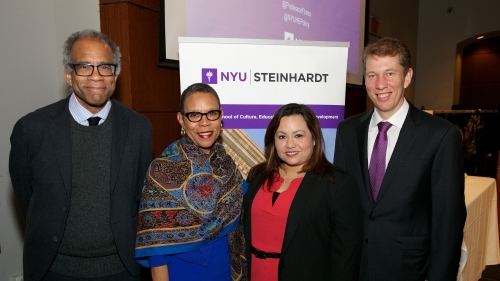
Beyond Fisher: The Supreme Court and the Future of Race in Higher Education
March 4, 2016
Randall Kennedy, Michael R. Klein Professor, Harvard Law School
Mary Schmidt Campbell, President, Spelman College
Stella Flores, Associate Professor of Higher Education, NYU Steinhardt
Trevor Morrison, Dean and Eric M. and Laurie B. Roth Professor of Law, NYU Law
The affirmative action case pending in the Supreme Court, Fisher v. University of Texas, has important implications for the future of access to higher education in both the public and private sectors. Today issues of race in higher education are wide-ranging and extend far beyond the issues of admissions and affirmative action. This forum addresses both the central issues in the Fisher case and broader questions regarding the future of race in American higher education. The presenters are distinguished leaders from the fields of social science research; constitutional law; race studies; public policy and academic leadership.
Introducing the Higher Education Systems of Vietnam and South Korea
February 10, 2016
Phuong Thi Mai Nguyen, Fulbright Visiting Scholar, NYU & Vice-Director, Research Institute of Education Management, Vietnam
Sue-Yeon Song, Doctoral Candidate, NYU
The presenters address major issues in higher education in Vietnam and South Korea. Phuong Thi Mai Nguyen offers an overview of the Vietnamese Higher Education system. She touches on several aspects of the system including governance, the entrance exam, being a female academic and privatization of higher education. Sue Yeon-Song's presentation covers key aspects of Korean higher education system to help understand the current trends and issues in the higher education sector in Korea. She provides an historical overview of educational development, key achievements and challenges, major reform initiatives, and internationalization of higher education.
2015 Events
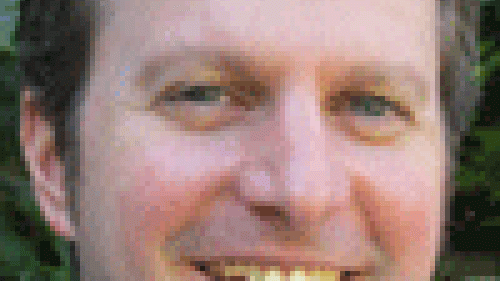
Approaches to Student Equity Frameworks in Higher Education: Australian Perspectives
November 10, 2015
Andrew Harvey, Director, Access and Achievement Research Unit at University of La Trobe, Australia
Dr. Harvey’s presentation outlines the need to revise Australia’s 1990 framework for student equity in higher education, A Fair Chance for All. In addition, Dr. Harvey discusses his project with Dr. Stella Flores of NYU entitled, “The Development of an international student equity admissions framework”. A goal of the project is to build a consortium of scholars and practitioners interested in researching successful interventions for college access across various international contexts. The project is partially funded by the Educational Testing Service and The University of Pennsylvania’s Center for Minority Serving Institutions.
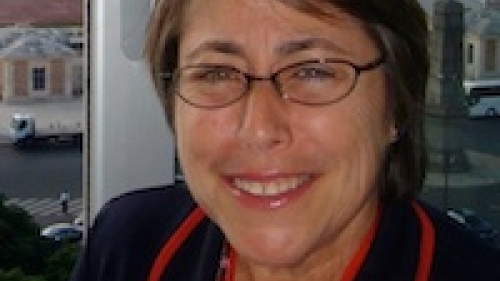
The College Promise Campaign
October 27, 2015
Martha Kanter, Distinguished Visiting Professor of Higher Education and Senior Fellow, NYU and Co-Chair, The College Promise Advisory Board
During the 2015 State of the Union address, President Obama proposed America’s College Promise, to make 2 years of a community college education free for responsible students throughout the nation. The proposal was inspired by bi-partisan efforts in Tennessee, Chicago, Miami, Long Beach, and Kalamazoo where leaders came together to make good on the Promise. We all know that nothing is free, but these states and communities have found diverse ways to make this happen for their students. In fact, there are more than 65 College Promise programs around the country and more starting every week. The College Promise Campaign is supported by cross-sector leaders from education, business, philanthropy, non-profits, labor, students and elected officials. They are committed to encourage the establishment and expansion of College Promise programs across the country – to find ways in local communities and states to fund tuition and fees for the first two years of college for any student willing to work hard and persist to graduation.
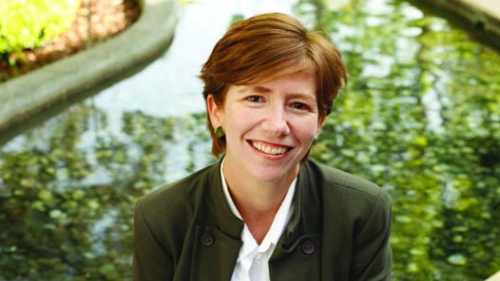
Learning from Experimentation in Developmental Math in Community Colleges in California: Results from a Long-Term Research Partnership
October 19, 2015
Tatiana Melguizo, Associate Professor of Education, University of Southern California
A substantial number of students start their educational journeys at community colleges, and one of their first interactions is with the assessment and placement (A&P) process. Being open-access institutions, community colleges use a number of A&P practices to place students in the appropriate developmental and pre-requisite math courses. However, concerns about student persistence in this coursework have drawn attention to the effectiveness of A&P processes themselves. For the past five years Melguizo and her research team have worked closely with faculty and administrators from a large urban community college district to describe and evaluate their A&P policies. Findings from their work indicate that faculty are using A&P as enrollment management tools, that the use of diagnostic tests resulted in better placement outcomes than the use of computer-adaptive tests (e.g., ACCUPLACER), and that the use of multiple measures (e.g., high school transcript information) to complement scores from tests were helpful in refining placement decisions. Finally, they proposed a way for colleges to systematically test the way they were setting placement cutoffs. All these findings have provided solid empirical evidence that is helping colleges -- not only in California but around the nation -- to improve their A&P policies and eventually increase student success.
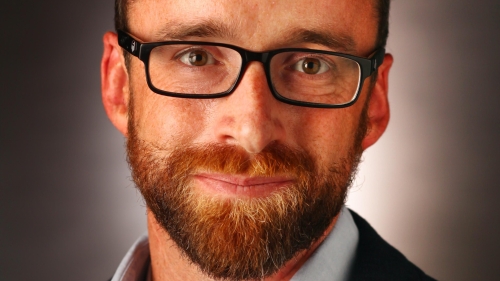
Does College Still Pay Off? New Estimates of the Civic and Economic Benefits of Higher Education
William Doyle, Associate Professor of Higher Education and Public Policy, Vanderbilt University
Government support for higher education hinges on the civic and economic benefits from a more highly educated population. Sending more people to college should result in a citizenry that earns more and engages in civic activities such as voting and volunteering. Previous studies have provided evidence of the impact of college on earnings and civic participation. During the late 2000s, in the midst of a slumping labor market, many policymakers began to question both the economic and civic value of a college education, wondering whether continued government investment still provided either economic or civic benefits. Using updated data from the National Longitudinal Survey of Youth and new measures of geographic variation in college opportunity, I provide up-to-date estimates of the economic and civic benefits of higher education. I find that even during the tumultuous period of 2008-2012, the economic and civic benefits of postsecondary education remained strong. However, these benefits do not accrue to all populations in the same way.
Race, Politics and Education in Brazil: Affirmative Action in Higher Education
October 7, 2015
Presenters:
Ollie Johnson, III, Associate Professor, Wayne State University
Erich Dietrich, Associate Dean, NYU Steinhardt
Amilcar Pereira, Associate Professor, Universidade Federal do Rio de Janeiro
The authors discuss the central findings of their new book, Race, Politics, and Education in Brazil: Affirmative Action in Higher Education (2015), which evaluates Brazilian affirmative action by putting new policies in historical and political context. Erich Dietrich discusses race- and class-based affirmative action policies in Brazilian public universities, including cases of resistance to their implementation. Ollie Johnson examines the role of Afro-Brazilians in Brazilian society and politics, especially the presence and absence of Blacks at the highest levels of the national government. Amilcar Pereira discusses the Black Movement’s struggle for the inclusion of the teaching of African and Afro-Brazilian history in Brazilian schools.
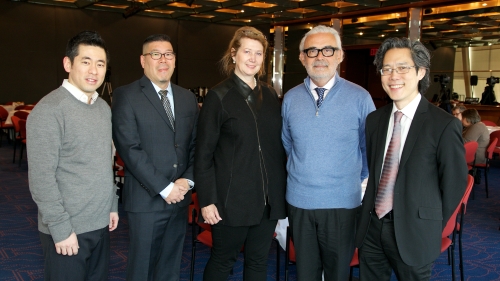
Undocumented College Students: In the Shadows of the Ivory Tower Findings from America's First Survey of Undocumented College Students
April 2, 2015
Presenters:
Steven Choi, Esq., Executive Director of the New York Immigration Coalition
Janet Perez, Lehman College student and activist
Carola Suárez - Orozco, Professor of Education, UCLA
Marcelo Suárez - Orozco, Wasserman Dean and Distinguished Professor of Education, UCLA
Robert Teranishi, Professor of Education, Morgan and Helen Chu Endowed Chair in Asian American Studies, UCLA
Hirokazu Yoshikawa, Courtney Sale Ross Professor of Globalization and Education, NYU
The UCLA Institute for Immigration, Globalization, and Education published findings from a nationwide study of undocumented college undergraduates: In the Shadows of the Ivory Tower: Undocumented Undergraduates and the Liminal State of Immigration Reform. The report, which carries implications for policy makers as well as colleges and universities, sheds light for the first time on the needs and challenges of undocumented college students.
Watch a Video of "Undocumented College Students: In the Shadows of the Ivory Tower"
2014 Events
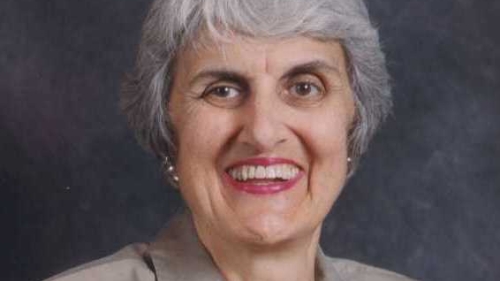
Great New Books in the Humanities - Critical Terms for the Study of Gender
The panel discussion included scholars and contributors to the volume:
Catharine Stimpson, Professor of English, NYU
Phil Harper, Professor Social and Cultural Analysis, NYU
Carroll Smith-Rosenberg, Professor Emerita of History, American Culture and Women's Studies at University of Michigan
Moderator:
Lauren Benton, Dean of the Graduate School of Arts and Science at NYU
The event, sponsored by the Humanities Initiative at NYU and the New York Institute for the Humanities at NYU, delved into the study of gender from multiple disciplinary perspectives.
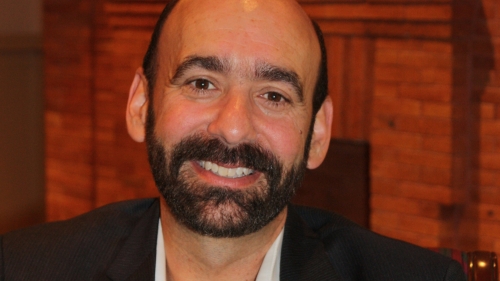
Aspiring Adults Adrift: Tentative Transitions of College Graduates
November 3, 2014
Presenter:
Richard Arum, Professor of Sociology, New York University
Respondents:
Adam Gamoran, President, William T. Grant Foundation
Jennifer Jennings, Assistant Professor of Sociology, New York University
Aspiring Adults Adrift: Tentative Transitions of College Graduates follows Richard Arum and Josipa Roksa’s 2011 landmark study of undergraduates’ learning, socialization, and study habits, Academically Adrift: Limited Learning on College Campuses. Their new book follows the same cohort of undergraduates through the rest of their college careers and out into the working world.
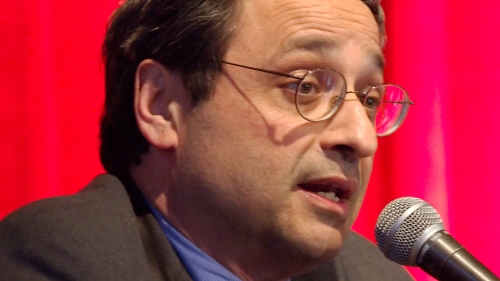
Interesting Times: Reflections on America's Colleges
October 29, 2014
Andrew Delbanco, Chair of American Studies and Professor of Humanities, Columbia University
Professor Delbanco is the author of many books, including College: What it Was, Is, and Should Be (Princeton University Press, 2012). Melville: His World and Work (2005) was a finalist for the Los Angeles Times Book Prize in Biography, appeared on “best books” lists in the Washington Post, Independent (London), and TLS, and was awarded the Lionel Trilling Award by Columbia University.
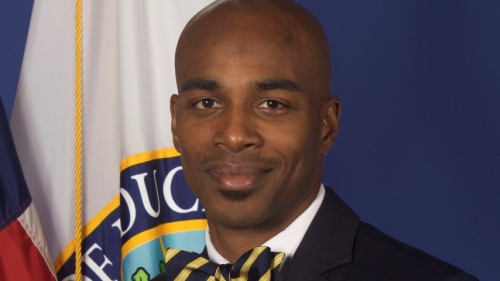
Higher Education Priorities
James Minor, Deputy Assistant Secretary of Education for Higher Education Programs
The Steinhardt Institute for Higher Education Policy hosted James Minor, Deputy Assistant Secretary of Education for Higher Education Programs, for a lunch talk and guest lectures at two Steinhardt graduate courses. James Minor is an expert on historically black colleges and universities and currently serves in the Obama administration as the officer directly responsible for the federal government's many programs to promote access to higher education and success for all of our students.
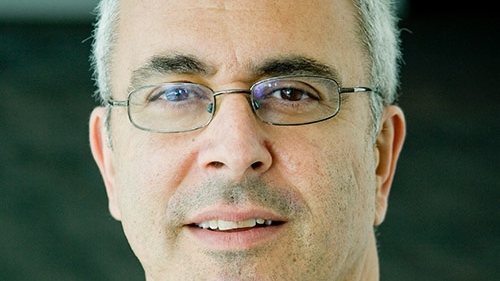
Defining Excellence in Community Colleges
April 29, 2014
Presenter:
Josh Wyner, Executive Director of the Aspen Institute College Excellence Program
Moderator:
Martha Kanter, Distinguished Visiting Professor, New York University
Josh Wyner is the author of the recently published book, What Excellent Community Colleges Do. He has led a singular effort to focus national attention on defining excellence and supporting leadership that strives for stronger academic results.
2013 Events
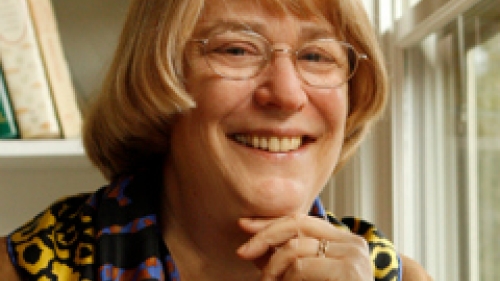
Private Dollars for Public Purposes: Are Foundations Setting the Agenda for Higher Education Reform?
October 25, 2013
Patrick M. Callan, President, Higher Education Policy Institute
Kevin Carey, Director, Education Policy Program, New America Foundation
Ellen Condliffe Lagemann, Levy Institute Research Professor, Bard College
Over the past five years, the higher education “reform agenda” has largely coalesced around a few goals: graduating more students, more quickly, and at a lower cost. Philanthropic foundations such as Gates and Lumina have led this strategy, and the federal government and some states have followed their lead in proposing new measures addressing curriculum and student progress.
Some worry about the effects this strategy is having on research, innovation and creative problem-solving. Are the vast resources being poured into these efforts drowning out the voices of researchers, practitioners and higher education leaders who might pursue alternative goals or approaches? Is it appropriate for public institutions to be shaped by the priorities and judgments of philanthropic foundations? And what do these changes mean for the future of higher education's longstanding commitment to faculty and institutional autonomy and the diversity of academic initiatives?
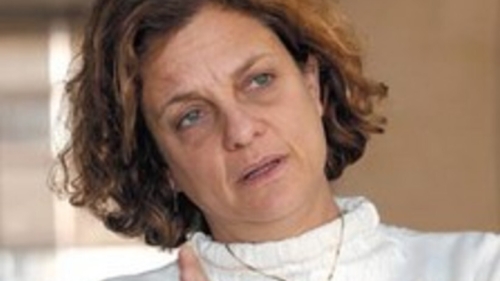
Myths and Realities: The True Story of Israeli Education
September 26, 2013
Yuli Tamir, President, Shenkar College
This talk described the challenges facing the Israeli education system. Prof. Tamir argued that the main difficulties the Israeli education system is facing are grounded in the social- economic crisis that Israeli society is facing and not, as many claim, in the low level of either teachers or the education system as a whole. In Israel, as well as in the USA and elsewhere, educational failure is grounded in poverty and alienation. At its best Israeli education produces able, creative, innovative graduates - it does so not only theough formal education but also through informal channels such as: youth movements, pre-military activities and the army itself. But most of these opportunities are class related. Improving education in Israel is then a social not an educational issue.
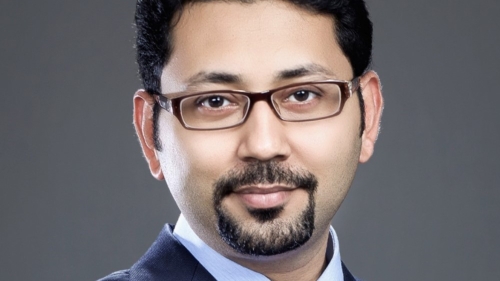
Indian Higher Education: Reform in Context of Political and Economic Changes
April 3, 2013
Rahul Choudaha, World Education Services
The session discussed the context of reforms and key developments in Indian higher education from the perspective of balancing the needs of access and quality in response to sociopolitical and economic changes.
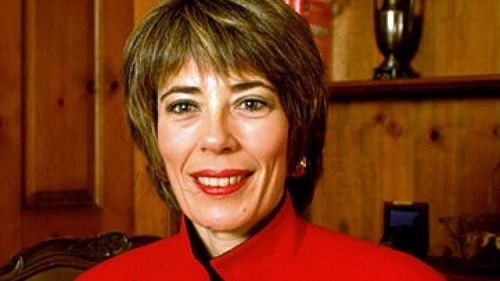
The Community College JIGSAW: Putting the Pieces Together
Case Study of Award-winning Kingsborough Community College
March 5, 2013
Regina S. Peruggi, President, Kingsborough Community College, The City University of New York
John S. Levin, Director, California Community College Collaborative, Graduate School of Education, University of California, Riverside
New York’s Kingsborough Community College in Brooklyn was named one of ten finalists for the Aspen Prize for Community College Excellence, the nation’s signature recognition of high achievement and performance in America’s community colleges. Part of the City University of New York system, Kingsborough now enters the last stage of the competition for the $1 million prize that will be awarded in March.
Regina S. Peruggi, President of Kingsborough Community College, will discuss the academic strategies KCC has adopted to support student achievement and her insights regarding leadership and institutional culture-building necessary to create a climate of change and challenge.
Founded in 1963 and located in Sheepshead Bay, Kingsborough is the only comprehensive community college in Brooklyn, New York. It has earned national recognition for the large number of degrees it confers, the high percentage of graduates who complete their studies, and the innovative programs that draw thousands of nontraditional students to its campus. Offering both liberal arts and career education, the college serves nearly 70,000 credit and non-credit students each year.
2012 Events

Cloud Over the Campus: MOOCS, On-line Degrees, and other 21st Century Great Expectations
November 29, 2012
Catharine Stimpson, University Professor & Dean Emerita, New York University
Ann Kirschner, University Dean, Macaulay Honors College, The City University of New York
Christopher Hoadley, Associate Professor, New York University
E-learning is one of the most burning issues in education today -- and it will shape the future. But what is the actual experience of taking a technology-enabled course? In Spring 2012, two leading educators threw aside their usual routines and became students again. Ann Kirschner, the Dean of Macaulay Honors College at the City University of New York and the founding president of Fathom, signed up for a University of Pennsylvania course offered through Coursera. Catharine R. Stimpson, Dean Emerita of the Graduate School of Arts and Science at New York University and University Professor, became a "Phoenix" and took an on-line class at the University of Phoenix. They will describe what they learned, and their surprises -- pleasant and unpleasant. Their very personal accounts will become a platform for new perspectives about being a part of the 21st century classroom.
Clark Kerr's World of Higher Education Reaches the 21st Century
October 25-26, 2012
A symposium to mark the publication of Sheldon Rothblatt's new edited volume, Clark Kerr's World of Higher Education Reaches the 21st Century.

Higher Education in Turkey: Challenges and Opportunities
October 23, 2012
Füsun Akarsu, Vice President of Bogazici University
Professor Akarsu's work is in Education Science, where she studies educational strategies in the contexts of child development and institutional design. She has taught courses at Boğaziçi University, Middle East Technical University, Doğuş University, and Yıldız Technical University and is spending this year as a Visiting Professor at the Monterey Institute of International Studies of Middlebury College, where she is teaching a course on International Education Policy and a workshop on Intercultural Modes of Thinking. In Turkey, she has served in top leadership positions at Boğaziçi University as well as on government committees.

China's Universities: Are They Congenial to a Changing Academic Profession?
May 1, 2012
Gerard A. Postiglione, The University of Hong Kong
Global changes have turned China's universities into instruments of national competition as well as instruments of peaceful exchange. As the state steers reform amid the rise of market forces, the emergent system of mass higher education has revealed its limitations in ensuring equitable access, strengthening the quality of teaching and research, and reducing over-administration. Top tier research universities fare far better than the wider system in research and curriculum innovation, as well as attracting international students and overseas collaboration. Second and third tier regional and private universities are often stymied in responding to a market of domestic demands. On all tiers of the expanding university system, a younger academic profession is becoming an increasingly salient influence. This talk provided a brief overview and research findings about the extent to which China's universities are congenial to its changing academic profession.

Economic and Racial Diversity in American Higher Education: A Current and Future Perspective under Obama and the Supreme Court
Lia Epperson, American University Washington College of Law
Bridget Terry Long, Harvard Graduate School of Education
Ada Meloy, American Council on Education
Mitchell L. Stevens, Stanford University
What does it mean for colleges and universities to open their doors and make education affordable and accessible for all? Do colleges and universities foster economic diversity through the new “no loans” financial aid policies? Have the new aid policies affected access for low-income students? Can colleges and universities foster racial diversity within the guidelines set by the Supreme Court and a Bush-era interpretation of them that limited affirmative action in admissions? Are the new guidelines recently released by the Obama Administration expected to have an impact in allowing institutions to employ additional strategies to include a wider range of students in admissions processes? And, what might be a likely outcome of the recent decision of the Supreme Court to hear another challenge to race-conscious affirmative action?
This symposium brought together Ada Meloy, the General Counsel of the American Council on Education, and a group of scholars who have contributed to the recently-published, Diversity in American Higher Education: Toward a More Comprehensive Approach (Lisa M. Stulberg and Sharon Lawner Weinberg, eds, Routledge, 2011), to confront the question of the future of economic and racial diversity in colleges and universities from legal, financial, and sociological perspectives.
2011 Events
President Obama's 2020 Goals for Higher Education
November 7, 2011
Martha J. Kanter, Under Secretary, U.S. Department of Education
Dr. Kanter gave a keynote address focusing on President Obama's 2020 goal for America to have the highest proportion of college graduates in the world. She discussrf access, quality, and completion and the role of higher education in a vibrant, democratic society.
The Diversity Dividends of a Need-Blind and Color-Blind Affirmative Action Policy
October 18, 2011
Sigal Alon, Tel-Aviv University, Israel
Leadership and Student Activism in Chilean Higher Education Carmen Mentecinos
October 6, 2011
Nelson Vasquez, Pontificia Universidad Catolica de Valparaiso, Chile
Admission Preferences for Children of Alumni: Who Benefits? Who Loses?
April 28, 2011
Richard Kalhenberg, The Century Foundation
Daniel Golden, Bloomberg News
Jeffrey B. Brenzel, Yale University
A great deal of attention has been paid to racial affirmative action programs in higher education. The merits and legality of such programs have been debated in academic circles, political campaigns, and the U.S. Supreme Court. However, relatively little public or legal scrutiny has been devoted to college admissions preferences for the children of alumni. How widespread are legacy preferences? Do they help colleges fundraise, as institutions of higher education claim? Do they help or hurt students of color? Are legacy preferences legally and politically vulnerable? These and other questions are raised in a new book published by The Century Foundation, entitled Affirmative Action for the Rich: Legacy Preferences in College Admissions Please join us in a discussion with a panel of experts who have given a great deal of thought to these issues and bring a variety of perspectives to bear.
The Transformation of Higher Education in Brazil: The Good and The Not-So-Good
April 27, 2011
Renato H. L. Pedrosa, University of Campinas (Unicamp)
Higher Education in Brazil has changed dramatically in the course of the last 15 years. After a fairly stable and stagnant period, enrollment in higher education nationwide has tripled, graduate programs and indexed research have exploded, social inclusion through Affirmative Action and other means have become a critical issue, and new assessment systems have been put in place.
But some of these changes came with disturbing side-effects: quality is uneven, for-profit institutions are now responsible for more than half of national undergraduate enrollment (though they lack research and graduate programs), internationalization is a mirage, and there is lack of coordination and planning in the public sector. This colloquium will present data and information on these aspects of higher education in Brazil, concluding with recent trends that will likely push for even further transformation.
Asians in the Ivory Tower:
America's Equity Agenda and the Blurring of the Color Line in Higher Education
April 6, 2011
Robert Teranishi, Associate Professor of Higher Education, New York University
Walter Allen, Director, CHOICES Project: Access, Equity, and Diversity in Higher Education
Kiran Ahuja, Executive Director, White House Initiative on Asian Americans and Pacific Islanders
Pedro Noguera, Executive Director, Metropolitan Center for Urban Education
One of the most urgent challenges facing the United States in the 21st century is increasing the proportion of Americans with a postsecondary credential to meet the growing needs and changing demands of a global economy. This can only be achieved through the participation of all Americans, including underrepresented racial minority groups, low-income students, immigrants, and language minorities. It is within this context that this panel highlights the relevance of the Asian American and Pacific Islander (AAPI) student population - a large and growing segment in higher education that is often overlooked, underserved, and fundamentally misunderstood.
Join us in a discussion on how and why AAPIs are relevant in the broader discourse on equity and diversity in higher education. In particular, the panel will discuss recent research on AAPI college students, connect these findings to a deeper understanding of race and race relations in American higher education, and discuss the implications of this work to research, practice, and policy.
The Evolution of European Universities: The State, The Universities, The Professoriate
April 5, 2011
Christine Musselin, Director of the Center for the Sociology of Organizations, Research in Higher Education
Dr. Musselin leads comparative studies on university governance, public policies in higher education and research, state-universities relationships, and academic labor markets. Her more recent research deals with the transformation of academic trajectories and with the impact of the 2007 French reforms on universities. She was a DAAD fellow in 1984-1985 and a Fulbright and Harvard Fellow in 1998-1999. She is coordinating editor of Higher Education and a member of the editorial board of Sociologie du Travail. Her recent books include: The Market for Academics: A Study of the Professoriate in the U.S., France and Germany (2009) and The Long March of French Universities (2004).
International University Rankings and the Race for World-Class Status
February 03, 2011
Jürgen Enders, Director, Center for Higher Education Policy Studies (CHEPS)
The Rankings Game: who wins, who loses? This question is now one of the most important in global higher education. International rankings of research universities are having an increasing impact on higher education around the globe. National policy makers and institutional leaders feel the need to develop strategic plans to excel in the rankings game. More and more countries, including those in Europe, Asia, and Latin America, strive for membership of some of their universities in the stratum of the most elite universities currently dominated by the U.S. In effect, rankings contribute to the formation of a globally contested field of world-class universities and the further stratification of national higher education landscapes. As countries devote significant resources to this highly expensive race for world-class status, nation-specific goals for access, equity, and quality teaching may suffer.
Dr. Enders will address the role of rankings in the global governance of higher education as well as the benefits and costs of the international academic arms race. He will propose policy directions and strategic actions to strengthen the multiple roles of universities in contemporary societies.
2010 Events
Educational Leadership in Tough Economic Times
November 11, 2010
Nancy Zimpher, Chancellor of the State University of New York
Now more than ever, a college degree matters. Yet our "college-to-work pipeline" continues to leak, and the poor financial condition of our states has led to diminished investment in public higher education. This trend compromises our ability to graduate students on time and limits our capacity as job creators. We know that there is an immense "return on educational investment" for states, but in this economic environment, we need to make our case more emphatically. In this call to action to education leaders, Dr. Zimpher will lay out the anchor role of higher education in the revitalization of our economy, and describe the strategic actions that will allow us to reach our potential as institutions and as a nation.
Gender and Affirmative Action in Higher Education in India
April 28, 2010
Jyoti Atwal, Assistant Professor, Jawaharlal Nehru University, New Delhi
The Indian higher education system has emerged as one the most expansive and complex educational systems in the world, with more than 11 million students and almost half a million teaching staff. The education system in India remains one of the most crucial sources of social change and employment to many who belong to the lower/marginal castes. Despite a well formulated policy of affirmative action, the representation of dalit (scheduled caste) and adivasi (scheduled tribes) students in institutions of higher learning remains inadequate and the proportion of women among them is negligible. In recent years, Indian universities and colleges have been debating these two major issues - one, the affirmative action for socially marginalized groups and the other - women's inclusion in higher education. This presentation will focus on how these two issues are being debated in contemporary India and seeks to locate these efforts in a historical context.
Class-based Affirmative Action by Creaming - A Contradiction?
April 13, 2010
Sigal Alon, Senior Lecturer in Sociology, Tel Aviv University
Policy and Performance in American Higher Education
March 25, 2010
Richard Richardson, Professor of Higher Education, New York University
In his new book, Policy and Performance in Higher Education: An Examination of Cases Across State Systems (Johns Hopkins University Press, 2009), higher education professor Richard Richardson offers a new approach to understanding how public policy influences institutional performance. In an era in which state governments are asking postsecondary institutions to meet higher standards for student learning and achievement with fewer resources, Dr. Richardson's discussion of the challenges and promise of effective policy implementation is even more critical. Drawing on seven years of observations, interviews and research, Dr. Richardson will describe efforts made in five states (New York, California, New Jersey, New Mexico and South Dakota) to create, implement, and enforce state policy aimed at improving institutional efficiency and student outcomes.
Academically Adrift: Limited Learning on College Campuses
March 4, 2010
Richard Arum, Professor of Sociology and Education, New York University
How much are college students really learning? Professor Richard Arum presented findings from a major longitudinal study of student learning in higher education. His research follows approximately 2,400 students at 24 diverse U.S. colleges and universities over a two year period to examine how institutional settings, student backgrounds, and individual academic programs influence how much -- and whether -- students learn on campus. His study uses a recently developed, unique learning assessment tool, the Collegiate Learning Assessment (CLA), which measures the "higher order thinking skills" that colleges and universities aim to teach: problem-solving, critical thinking, analytical reasoning and communication skills.
2006 Events
Access and Success in Higher Education: Can Public Policy Make a Difference?
November 30, 2006
Patrick Callan, President, National Center for Public Policy and Higher Education
Minority Student Success and Accountability in Higher Education
November 16, 2006
Estela Bensimon, Professor of Higher Education, University of Southern California
Public Higher Education in the 21st Century: The CUNY Story
October 25, 2006
Matthew Goldstein, Chancellor, The City University of New York
College Admissions in the Public Interest
June 15 and 16, 2006
Lloyd Thacker, Director, The Education Conservancy
Growing concern about the college admission environment calls for immediate leadership among college presidents. If a group of presidents were united by the prospect of improving the present system, what might be the outcome and impact? This meeting of college presidents explored this opportunity to formulate a strategy for effecting meaningful and lasting change.
The Origins of Affirmative Action at Elite Universities
April 20, 2006
Jerome Karabel, Professor of Sociology, The University of California, Berkeley
2005 Events
Extending Opportunity in Higher Education
December 8, 2005
William Bowen, President, The Andrew Mellon Foundation
Race and Class in Higher Education
November 4, 2005
Lani Guinier, Professor of Law, Harvard Law School
Richard Kahlenberg, Senior Fellow, The Century Foundation
How Private Foundations Influence Universities
April 21, 2005
Charles Clotfelter, Professor of Public Policy Studies, Duke University
In their grant-making to universities, do foundations act as patrons or bullies?
The Disciplinary University
April 7, 2005
Steven Brint, Professor of Sociology, University of California, Riverside
What are the causes and consequences of the new university strategies to create technologies, modes of expression, and social relations of the future?
The Effects of Affirmative Action in Higher Education
March 3, 2005
Douglas Massey, Professor of Sociology, Princeton University
The effects of affirmative action on student performance in selective colleges and universities.
Do Public Research Universities Have a Future
February 17, 2005
Roger Geiger, Professor of Education, The Pennsylvania State University
Will public research universities be able to compete against private universities?
Higher Education in the Age of Money
February 2, 2005
David Kirp, Professor of Public Policy, The University of California, Berkeley
Catharine Stimpson, Dean, Graduate School of Arts and Science, New York University
A dialogue about the tensions that emerge as market pressures threaten the traditional values and goals of higher education
2004 Events
The College Admissions Race
October 28, 2004
James Fallows, National Correspondant, The Atlantic Monthly
Christopher Avery, Professor of Public Policy, Harvard University
Bruce Poch, Vice President and Dean of Admissions, Pomona College
A discussion about inequalities and challenges in college admissions at elite institutions.
Opportunity and Danger: Basic Commercial Science on Campus
October 21, 2004
Jason Owen-Smith, Professor of Sociology, University of Michigan
How do shifting activities and arrangements on campus fundamentally alter the relationship between science, commerce and the academe?

